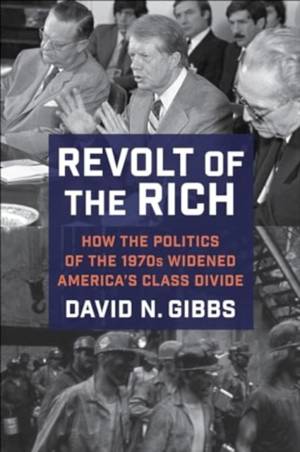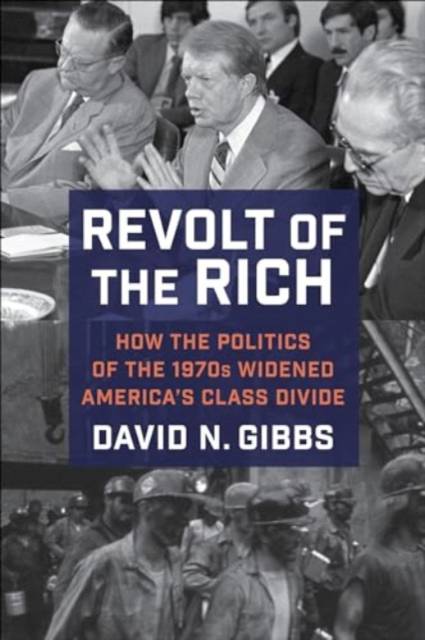
Je cadeautjes zeker op tijd in huis hebben voor de feestdagen? Kom langs in onze winkels en vind het perfecte geschenk!
- Afhalen na 1 uur in een winkel met voorraad
- Gratis thuislevering in België vanaf € 30
- Ruim aanbod met 7 miljoen producten
Je cadeautjes zeker op tijd in huis hebben voor de feestdagen? Kom langs in onze winkels en vind het perfecte geschenk!
- Afhalen na 1 uur in een winkel met voorraad
- Gratis thuislevering in België vanaf € 30
- Ruim aanbod met 7 miljoen producten
Zoeken
Revolt of the Rich
How the Politics of the 1970s Widened America's Class Divide
David Gibbs
Hardcover | Engels
€ 203,95
+ 407 punten
Omschrijving
Inequality in the United States has reached staggering proportions, with a massive share of wealth held by the very richest. How was such a dramatic shift in favor of a narrow elite possible in a democratic society? David N. Gibbs explores the forces that shaped the turn toward free market economics and wealth concentration and finds their roots in the 1970s. He argues that the political transformations of this period resulted from a "revolt of the rich," whose defense of their class interests came at the expense of the American public.
Drawing on extensive archival research, Gibbs examines how elites established broad coalitions that brought together business conservatives, social traditionalists, and militarists. At the very top, Richard Nixon's administration quietly urged corporate executives to fund conservative think tanks and seeded federal agencies with free-market economists. Even Jimmy Carter's ostensibly liberal administration brought deregulation to the financial sector along with the imposition of severe austerity measures that hurt the living standards of the working class. Through a potent influence campaign, academics and intellectuals sold laissez-faire to policy makers and the public, justifying choices to deregulate industry, cut social spending, curb organized labor, and offshore jobs, alongside expanding military interventions overseas. Shedding new light on the political alliances and policy decisions that tilted the playing field toward the ultrawealthy, Revolt of the Rich unveils the origins of today's stark disparities.Specificaties
Betrokkenen
- Auteur(s):
- Uitgeverij:
Inhoud
- Aantal bladzijden:
- 392
- Taal:
- Engels
Eigenschappen
- Productcode (EAN):
- 9780231205900
- Verschijningsdatum:
- 18/06/2024
- Uitvoering:
- Hardcover
- Formaat:
- Genaaid
- Afmetingen:
- 152 mm x 229 mm
- Gewicht:
- 743 g

Alleen bij Standaard Boekhandel
+ 407 punten op je klantenkaart van Standaard Boekhandel
Beoordelingen
We publiceren alleen reviews die voldoen aan de voorwaarden voor reviews. Bekijk onze voorwaarden voor reviews.









